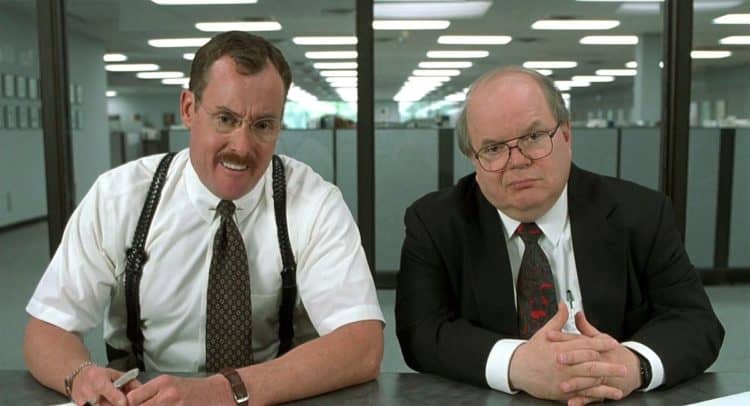
Satirical movies are a polarizing genre. These types of films aren’t made for mainstream audiences in particular. Usually, satires are made based off on true events that happen in real life. The Dictator focused on Hitler and Nazism due to the events of World War II. Jojo Rabbit took another stab at this important event in history but highlighted the importance of love and kindness in the midst of a war-torn country and world. Dr. Strangelove Or: How I Learned to Stop Worrying and Love the Bomb is a funny political take on the cold war. Office Space is a jab at corporate jobs. The Graduate tackled the complexities of love and sex. As you can see, there are plenty of satires that poke fun at various different subjects in regard to real-world complications.
However, satires aren’t exactly the best when it comes to box office success. Office Space made $12 million. Dr. Strangelove Or: How I Learned to Stop Worrying and Love the Bomb made $9 million. Idiocracy made $453, 303. Jojo Rabbit made $90 million (which is great considering the estimated budget was $14 million). As you can see, despite the acclaim that most satires get from critics and film lovers, they’re clearly not resonating hard with most of the mainstream audience. So, the simple answer of why satirical movies barely exist is that they’re just not financially reliable. Studios care about one thing the most: Money. Sure, there are times when studios care more about prestigious awards than how much they collect at the box office, but no executive would ever greenlight a movie that they don’t think has the potential to be a box office success. These films were made on a relatively small budget, so the harm wasn’t completely done in terms of box office disaster, but they just weren’t heating up the box office enough to warrant the makings of more satires. However, this article isn’t just about exploring the financial side, as it doesn’t really answer the question of why satires don’t seem to strike a chord with most viewers. I skimmed the surface on the topic, but let’s get down to the root of these problems.
Nearly 80 million died in World War II. Families were lost and many more are still haunted by the effects of that devastating event. Adolf Hitler is pretty much public enemy number one. Yet, Jojo Rabbit is taking a comic stab at the war that has affected millions of people. Adolf Hitler is actually one of the focal points of the movie. Granted, the movie isn’t excusing Hitler’s heinous crimes or the devastating war itself, though it’s a light-hearted and darkly comedic affair that focuses on the Nazi side of the war. That’s just not appealing to a mainstream audience. The crazy thing is, Jojo Rabbit was a financial success since it made over triple its budget. But if we just narrow it down to domestic audiences, the film only made $33.4 million. Here’s a big shocker, most American films are made for Western audiences. At the end of the day, most people don’t want to be reminded of the horrors about a true-life tragedy.
However, not every film focused on tragic as I mentioned previously, and the reason that these movies are so devise because they’re making an important political statement and just like real-life politics, everyone has different views on various themes or topics. Idiocracy was a statement about the possible future of consumerism and anti-intellectualism. Hell, some people actually considered the cult classic a documentary during the Donald Trump presidency. Office Space took a jab at a capitalist society. Thank You For Smoking focuses on well…the dangers of smoking. Parasite was about the economic inequality and the distribution of wealth. Every movie has some type of message, but satires have an extra kick because of its important social themes. Movies are escapism, and these films tend to tug at reality in a major way. They’re essentially lectures without the professor and classroom. Mainstream audiences aren’t particularly interested in that. I’m not saying that most are looking for mindless drivel that doesn’t challenge the way they live their lives, but mainstream audiences just aren’t interested in the political nature that these movies provide. It has nothing to do with quality, as most movies in this specialty genre are fantastic. Satires are best served under the arthouse/independent banner. They serve better in the world that’s more story and character driven and will be appreciated better amongst the critics and film lovers who aren’t just looking for the escapism thrill.
 Follow Us
Follow Us





